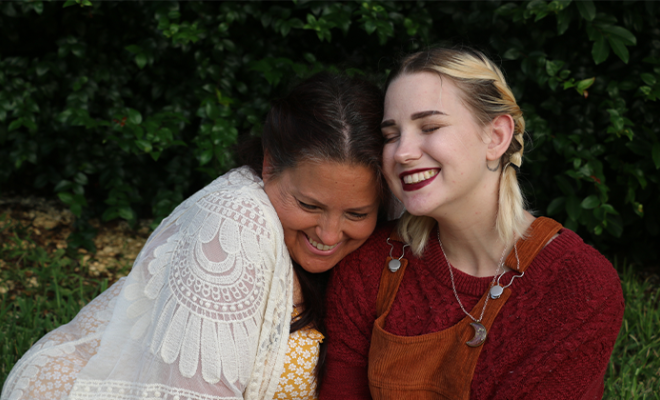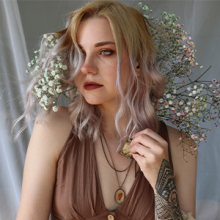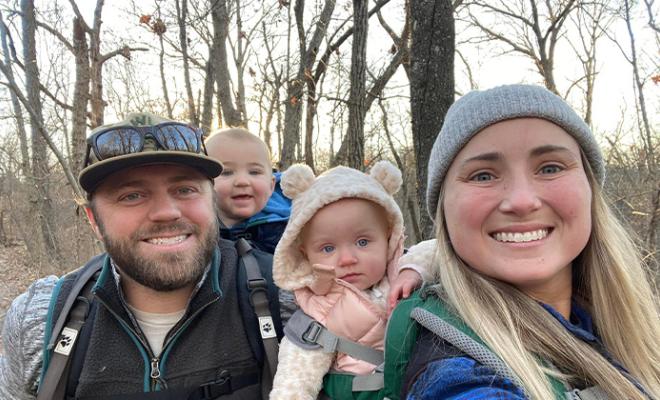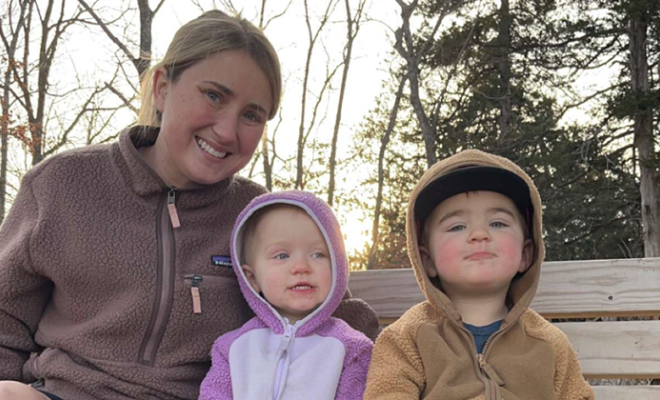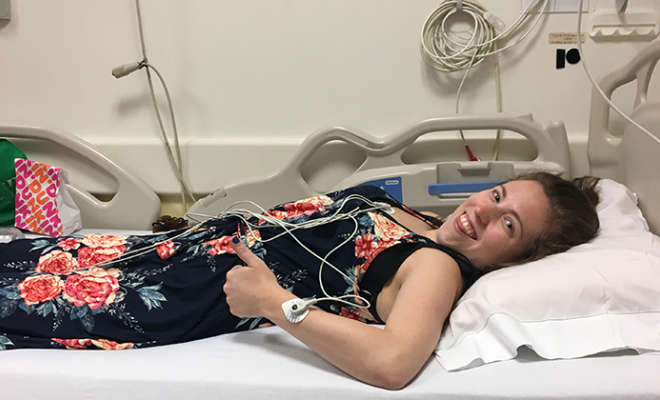What are you supposed to do when something you’ve spent your whole life defining yourself by suddenly disappears?
I will never forget the moment I realized my life was going to change forever. It was day four of being on Trikafta®, and I was in the process of moving across the country. The sun hadn’t risen yet when my husband and I got back on the road, our pets in the back seats. I had an energy drink in my hand and Fleetwood Mac playing on the car radio. And then I burst into uncontrollable tears.
That was the first morning in years that I didn’t wake up in a coughing fit. The first time I didn’t spend a half hour in the bathroom vomiting mucus. The first time I was able to wake up … and just go. I didn’t even realize it in the chaos of the morning, and when it finally hit me during a moment of peace, I was unable to hold back the flood of emotions pouring through me.
That was only the beginning of a long, transformative journey. Over the course of the next few months, my body would change faster than I could wrap my head around. I had more energy than I ever had before. I gained weight rapidly. I was able to walk around a theme park instead of needing a wheelchair. At first, all of this was exhilarating. After all, I was living a life I never let myself imagine I could live.
Before Trikafta, I spent my whole life mentally preparing for my health to get worse. I never let myself believe I could actually get “better.” I prided myself on being “realistic” when it came to my health and used that as a coping mechanism.
And it worked! I became really cool with the concept of my own mortality. I spent a lot of time and energy working on my inner self — working through the anxiety and depression that comes with being chronically ill. I was proud of that work. I had gotten to a place where, even though my health was so unstable, I was coping with that in a healthy way.
So, when the unthinkable happened — when my health got better instead of getting worse — I realized I no longer recognized myself.
When you grow up with a degenerative chronic illness, you find ways to cope with negative changes. So, what are you supposed to do when you experience a positive change?
I began to spiral. All of the things that I loved about myself, all these coping mechanisms that I had been leaning on for so long, were suddenly gone. I felt like I could no longer take pride in the way I coped with having cystic fibrosis because it genuinely felt like I didn’t have cystic fibrosis anymore. Something that had been a huge defining factor in my life disappeared almost overnight. What was left in the space it used to occupy? I was so scared to find out. Scared of the endless possibilities that came with this new life. Scared of who I would be without cystic fibrosis.
Over the course of the next two years, I had to re-learn who I was. Who is Monique, if she is no longer “the girl with cystic fibrosis?” It took a long time, but I eventually found her again. I came to the realization that I still am the girl with cystic fibrosis. That just looks a lot different now than it did before Trikafta. Those things that I loved about myself didn’t disappear. They were still inside me, and they helped me through this identity crisis as well. I still had a reason to like who I am.
In the absence of cystic fibrosis, I was even able to discover new things about myself that I never noticed before. I found out that I have a passion for gardening, something that would have been too difficult to do before Trikafta.
I dug through the aspects of myself that had been covered up by cystic fibrosis for the first time. While that process was scary, it was worth it to come out the other side, finally secure in myself once again.
After my health change on Trikafta, I had closed myself off from the CF community because I felt like I no longer belonged. Once I began to feel more like myself though, I also began to wade back into the community. What I found surprised me — I wasn't the only one who felt this way! I wasn’t the only one struggling with identity loss and feelings of guilt. Just like me, the cystic fibrosis community as a whole is transforming. We all are different now. We are the first in this new era of cystic fibrosis. Of course we’re going to struggle with these feelings — we’re in uncharted territory.
Once I could step back and realize that change is an inevitable part of the human experience — and that not all change is bad — I was able to let go of that image of who I used to be. I fully embrace who I am now.
I am Monique. I still have cystic fibrosis, even though it looks different now. I still have strengths that I take pride in, even if they manifest in different ways now. I still belong to this community, even if my relationship to it is different now. Different isn’t bad. Change is normal. And even though it took a little while, I’m happy to finally be in a place where I can appreciate those changes for what they are.
Interested in sharing your story? The CF Community Blog wants to hear from you.

